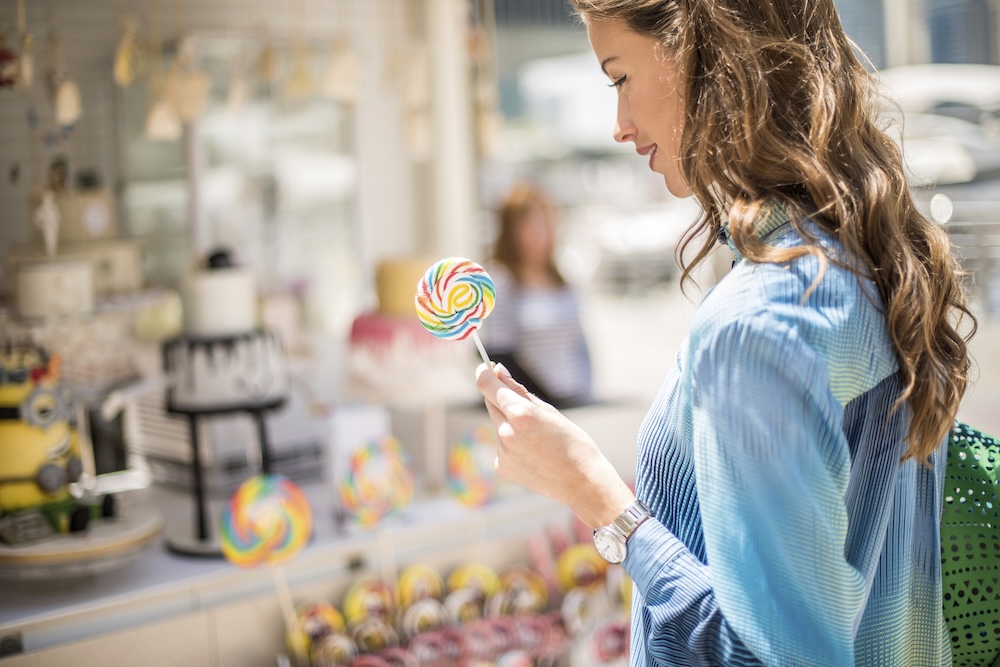The Cost of “Just One More Thing”
We’ve all been there — grabbing something at the checkout or scrolling late at night and clicking “Buy Now.” But impulse buys don’t just drain wallets; they create packaging waste, unnecessary shipping emissions, and clutter that rarely adds value.
Here are 15 of the most common impulse buys — and sustainable swaps or mindset shifts to help you break the cycle.
1. Checkout Candy and Snacks
Bright wrappers tempt you at the register, but most come wrapped in single-use plastic.
Sustainable Shift: Carry your own bulk-bin snacks or fruit for on-the-go cravings.
2. Bottled Water and Drinks
Convenient, yes. Wasteful, absolutely. Billions of single-use bottles end up in landfills and oceans each year.
Sustainable Shift: Invest in a reusable bottle. Refill at fountains, cafes, or at home.
3. Fast Fashion Finds
That cheap T-shirt or “on-trend” dress often falls apart after a few wears, fueling waste and unethical labor cycles.
Sustainable Shift: Build a capsule wardrobe and thrift when you want a refresh.
4. Beauty Minis
Travel-sized beauty products often come in tiny, non-recyclable packaging.
Sustainable Shift: Buy refillable containers and decant your favorites.
5. Tech Accessories
Phone cases, earbuds, chargers — often bought on impulse and tossed quickly.
Sustainable Shift: Choose durable, universal, or repairable tech accessories.
6. Home Décor Trinkets
Seasonal knick-knacks (plastic pumpkins, cheap ornaments) that lose charm after one season.
Sustainable Shift: Repurpose natural materials or make décor from upcycled items.
7. Coffee Shop Extras
Extra drinks, snacks, or bottled beverages add plastic waste (and surprise expenses).
Sustainable Shift: Bring your own mug, limit upsells, and savor the drink you came for.
8. Online “Lightning Deals”
Flash sales push us to click fast — often for items we don’t really need.
Sustainable Shift: Use a 24-hour rule before purchasing online.
9. Subscription Boxes
Trendy but often full of single-use plastics, packaging, and products you don’t use.
Sustainable Shift: Cancel subscriptions that don’t add value. Curate your own “experience box” instead (like bulk snacks or secondhand books).
10. Seasonal Clearance Items
Marked down after holidays, but often destined to collect dust until tossed.
Sustainable Shift: Skip clearance aisles; invest in timeless, reusable items instead.
11. Toys and Gadgets
Cheap gadgets or novelty toys often break quickly.
Sustainable Shift: Choose long-lasting toys, or gift experiences instead.
12. Plastic Storage Bins
Ironically, people buy bins to store clutter from… too many impulse buys.
Sustainable Shift: Declutter first, then reuse boxes or jars before buying new storage.
13. Kitchen Gadgets
Single-use tools (avocado slicers, egg separators) that end up forgotten in drawers.
Sustainable Shift: Stick to multi-purpose utensils you’ll actually use.
14. Impulse Groceries
Extra produce, snacks, or specialty items that go bad before they’re eaten.
Sustainable Shift: Shop with a list, stick to it, and plan meals ahead.
15. Car Accessories
Air fresheners, novelty items, and plastic add-ons add clutter and waste.
Sustainable Shift: Keep it simple — essential tools only, and natural fresheners like baking soda sachets.
Resisting Impulse Buys
- Saves money: Every skipped buy adds up.
- Cuts waste: Fewer plastic wrappers, packaging, and clutter.
- Boosts mindfulness: Aligns your choices with your values instead of a checkout display.
Final Thoughts
Impulse buys are designed to trick us into thinking we need more. But every avoided purchase is a small act of resistance — and a win for your wallet, your home, and the planet.









Reader Interactions